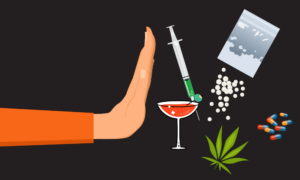Finding the Right Rehab Center for You

 Finding a good drug treatment centre, whether for a loved one or yourself, is not a simple task. False and unprofessional practises among some drug treatment facilities have increased. They appear to care only about making money. A lot of people don’t know where to start looking or why they shouldn’t trust the information they find when researching viable treatment options.
Finding a good drug treatment centre, whether for a loved one or yourself, is not a simple task. False and unprofessional practises among some drug treatment facilities have increased. They appear to care only about making money. A lot of people don’t know where to start looking or why they shouldn’t trust the information they find when researching viable treatment options.
You have decided to get help for an alcohol or drug abuse problem, and now you must select a rehab clinic that is suitable for your unique requirements. How do you pick the right drug or alcohol rehabilitation centre when there are so many to choose from? Here are a few essential factors to think about.

With so many drug users in South Africa, the cost of addiction has gone up...

Only a small percentage of the individuals in the South Africa who need treatment for...

Finding support in benzodiazepine addiction recovery is paramount, and it can take many shapes and...
While looking into rehab facilities and speaking with rehabilitation professionals, it is important to ask the following questions.
Accreditation and Certifications of Personnel
Those who work in the field of drug rehabilitation and offer their services and programmes to the public should be certified and/or licenced as evidence that they are up to par with the standards set forth by their respective nations. Without the proper credentials, staff members can’t guarantee patients the best possible treatment.
Collaborative Care Groups
The most effective inpatient addiction treatment programmes incorporate a team of professionals to address the psychological, physiological, and spiritual components of the disease. Multiple experts in the field of rehabilitation should collaborate on a customised treatment plan for you. Every member of the crew needs to hold the appropriate credentials in order to do their jobs effectively. It’s important to keep in mind which team members are juggling multiple roles. These are the types of professionals who make up a typical multidisciplinary treatment team.
Professional Counseling and Therapy
People who are dependent on alcohol or drugs often also struggle with another mental health issue, such as depression or anxiety. An accurate dual diagnosis is crucial to ensuring that the patient receives the most effective treatment possible. Treatments that target both addiction and the underlying mental health condition at the same time tend to have the greatest success with patients who have a dual diagnosis. If mental health services are not provided by the addiction treatment programme, research options for coordinating care with other healthcare providers.
Effectiveness of Treatment Outcomes
The effectiveness of treatment at many rehabilitation centres is either not measured at all or measured in widely varying ways. Providers may not even agree on what constitutes a successful outcome. If a rehab claims to have a “cure” or a 100% success rate, you should be sceptical. It is expected that success rates for rehabilitation would be derived from research-based methods or from scholarly publications.
Insurance / Medical Aid Options
Addiction treatment can be expensive, so it’s important to look for services that can share resources. Being part of a network also indicates that the facility is up to par with what the insurance companies consider to be acceptable quality care. It’s important to remember that just because a healthcare provider says they “work in conjunction with the insurance” doesn’t mean they actually are. Talk to your insurance provider if you have any questions.
Medication-assisted treatments or medical detox
Before starting a treatment programme, you can receive medical detoxification services at a local hospital or clinic. However, you may start rehab at the same time if you are receiving medical detoxification on-site. Members of the detox team include MDs and RNs who have completed special training in alleviating the discomforts of drug withdrawal and satisfying drug cravings. It is crucial to keep tabs on your health as you make a full recovery.
Individualised Treatment Programs
Effective addiction therapy don’t adhere to any particular treatment paradigm. Finding a rehabilitation centre that can cater to your specific needs is crucial. This could refer to services tailored to a specific age range, sexual orientation, or other demographic. Many aspects of rehabilitation can be taboo subjects in multi-cultural settings.
The time commitment required
Success in treatment is more important than a precise number of days spent there. Some substance abuse programmes provide an estimated length of stay, but if you don’t improve within that time, your treatment may be extended. You should look for programmes that provide multiple levels of recovery so that you can progress through the levels of care as your condition improves.
How to Spot a Rehab Centre You Shouldn’t Trust
Not all rehab centres operate with integrity, and it’s crucial to recognise the warning signs early. Be wary of facilities that promise quick cures or claim 100% success rates, addiction recovery is complex, and no programme can guarantee perfect outcomes. Another red flag is vague or evasive answers about treatment methods, staff qualifications, or pricing. Transparency is key; if a centre is reluctant to provide clear information, that’s a sign to look elsewhere.
Also, pay attention to high-pressure tactics. Ethical providers won’t rush you into signing up or push expensive treatments without properly assessing your needs. Look out for “patient brokering” where patients are referred in exchange for money — as this often prioritises profit over proper care. Always check for accreditation, and don’t be afraid to ask for references or reviews from past clients.
Understanding Different Types of Rehab Centres
Rehabilitation isn’t one-size-fits-all, and knowing the types of treatment centres available can help you make an informed choice. Inpatient rehab involves staying at the facility for a set period, ideal for those needing structure and intensive support. Outpatient rehab offers more flexibility, with patients attending sessions while living at home — suitable for those with strong support systems or milder dependencies.
There are also specialised centres offering holistic or faith-based approaches, often including therapies like meditation, fitness, or spiritual counselling. Some cater to specific demographics, such as youth, women, or LGBTQ+ clients, ensuring tailored support. Luxury rehabs provide upscale amenities, but don’t confuse comfort with quality, the treatment approach should always be the priority. Public or non-profit centres are also an option, especially for those needing affordable care, though waiting lists may apply.
What a Typical Day in Rehab Looks Like
Understanding the daily structure in rehab can ease some anxiety about entering treatment. A well-run centre balances therapy, routine, and rest. Most programmes start with a structured morning — group sessions, individual therapy, or workshops that help patients understand the roots of their addiction and develop coping strategies. Healthy meals and physical activities are usually built into the schedule, promoting both mental and physical recovery.
Afternoons often include specialised therapy, this could be trauma counselling, art therapy, or relapse prevention plannin. Depending on your individual needs. Evenings might involve support group meetings or time for reflection. The structure is designed to build discipline while also offering moments for personal growth. Consistent routine helps individuals feel grounded, and the sense of community fosters accountability and mutual support.
Why Aftercare Matters Just as Much as Rehab
Finishing rehab is just the start of recovery. Aftercare is the support that follows formal treatment thus plays a critical role in maintaining sobriety. Good centres will help you plan for life after rehab, whether it’s ongoing counselling, group support like NA or AA, or moving into a sober living environment. Without aftercare, the risk of relapse increases significantly, as people return to everyday stressors and triggers without support.
A solid aftercare plan helps you transition back to daily life while staying connected to resources that keep you accountable and supported. It’s also an opportunity to address challenges that arise post-treatment similar to rebuilding relationships, finding work, or managing mental health — with continued guidance. Don’t settle for a programme that doesn’t offer clear, structured aftercare support.

When the World Health Organization (WHO) officially recognized gaming disorder as a mental health condition...

Finding support in benzodiazepine addiction recovery is paramount, and it can take many shapes and...

There is a thin line separating what constitutes an addict from a recreational user. But...




